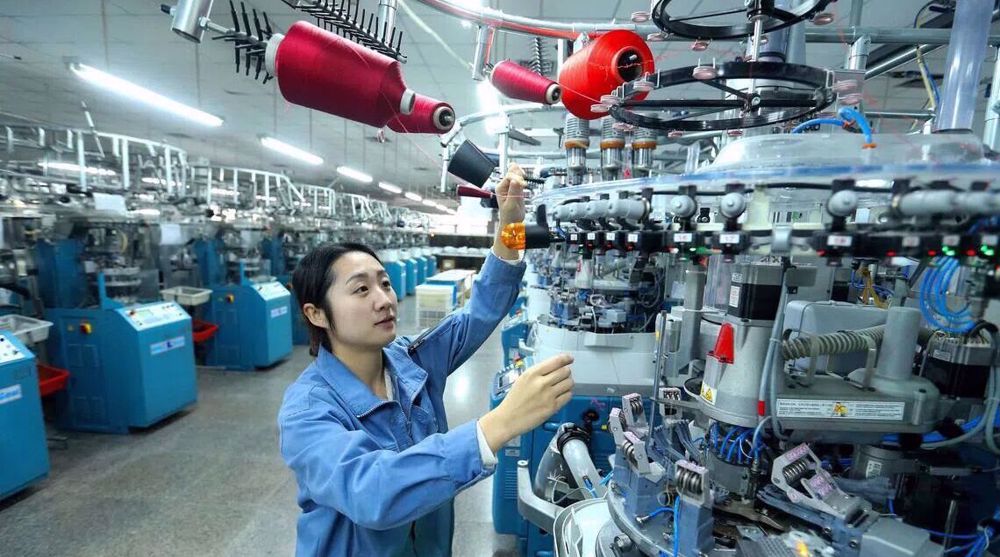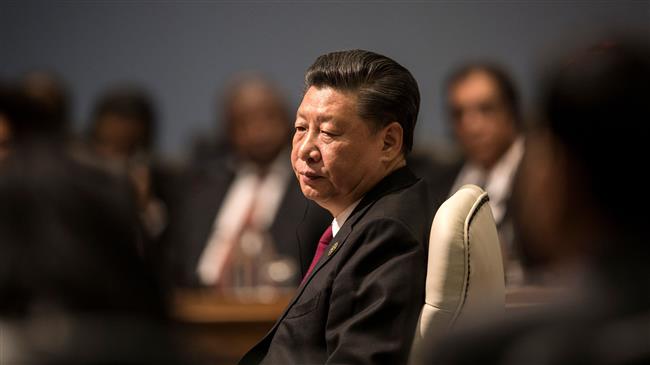Business ties with Iran don't harm other countries' interests: China
China, Iran’s top oil customer, says commercial cooperation between the two sides does not harm other countries' interests and thus should be protected from unilateral US sanctions.
China’s Foreign Ministry said in a statement released on Friday that Beijing's business ties with Tehran are "reasonable" and do not breach UN resolutions.
“For a long time, China and Iran have had open, transparent and normal commercial cooperation in the fields of business, trade and energy, which is reasonable, fair and lawful,” the statement read.
The cooperation, it added, "does not violate United Nations Security Council resolutions or China’s promised international obligations, nor does it harm the interests of any other country, and should be respected and protected."
The Chinese Foreign Ministry also expressed its opposition to unilateral US sanctions and “long-armed jurisdiction," saying that bans and threats would not settle the Iran issue.
“Only dialogue and negotiations are the true path to resolving the issue,” it pointed out.
China buys some $15 billion worth of crude oil from Iran a year, almost 650,000 barrels a day.
Earlier this week, US President Donald Trump signed an executive order, re-imposing a first round of sanctions on Iran, which had been lifted under the 2015 nuclear deal, known as the Joint Comprehensive Plan of Action (JCPOA). The second phase of US sanctions will come into effect in November targeting Iran’s oil industry, among others.
The move came three months after Washington’s withdrawal from the JCPOA despite objections from other parties to the accord – France, Britain, Germany, Russia and China – and the international community.
In a tweet, Trump warned that the countries doing business with Iran will “NOT be doing business with the United States".
However, the remaining parties to the JCPOA slammed the US sanctions and vowed to preserve the agreement.
The Russian Foreign Ministry said it was "deeply disappointed" by the US measures, vowing to do "everything necessary" to save the nuclear deal and protect its shared economic interests with Tehran.
Furthermore, EU foreign policy chief, Federica Mogherini, and foreign ministers of Britain, Germany and France issued a statement stressing that they deeply regretted the new anti-Iran bans.
They also announced an update of the Blocking Statute to protect EU companies doing business with Iran from the impact of US sanctions.
VIDEO | Iraqi political blocs denounce Trump’s interference in domestic affairs
China warns US against war on Iran, slams Washington militarism at UN
Pezeshkian orders public release of names of recent riots victims
VIDEO | Press TV's news headlines
Iran to start no war, but Armed Forces poised to defend homeland: Govt. spokeswoman
VIDEO | UNMHA exit: A legacy of failure in Hudaydah as violations persist
VIDEO | Winter hardships deepen suffering in occupied West Bank
VIDEO | Homes under occupation: When living rooms become military posts















 This makes it easy to access the Press TV website
This makes it easy to access the Press TV website